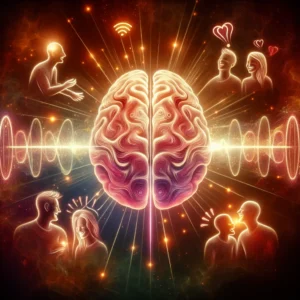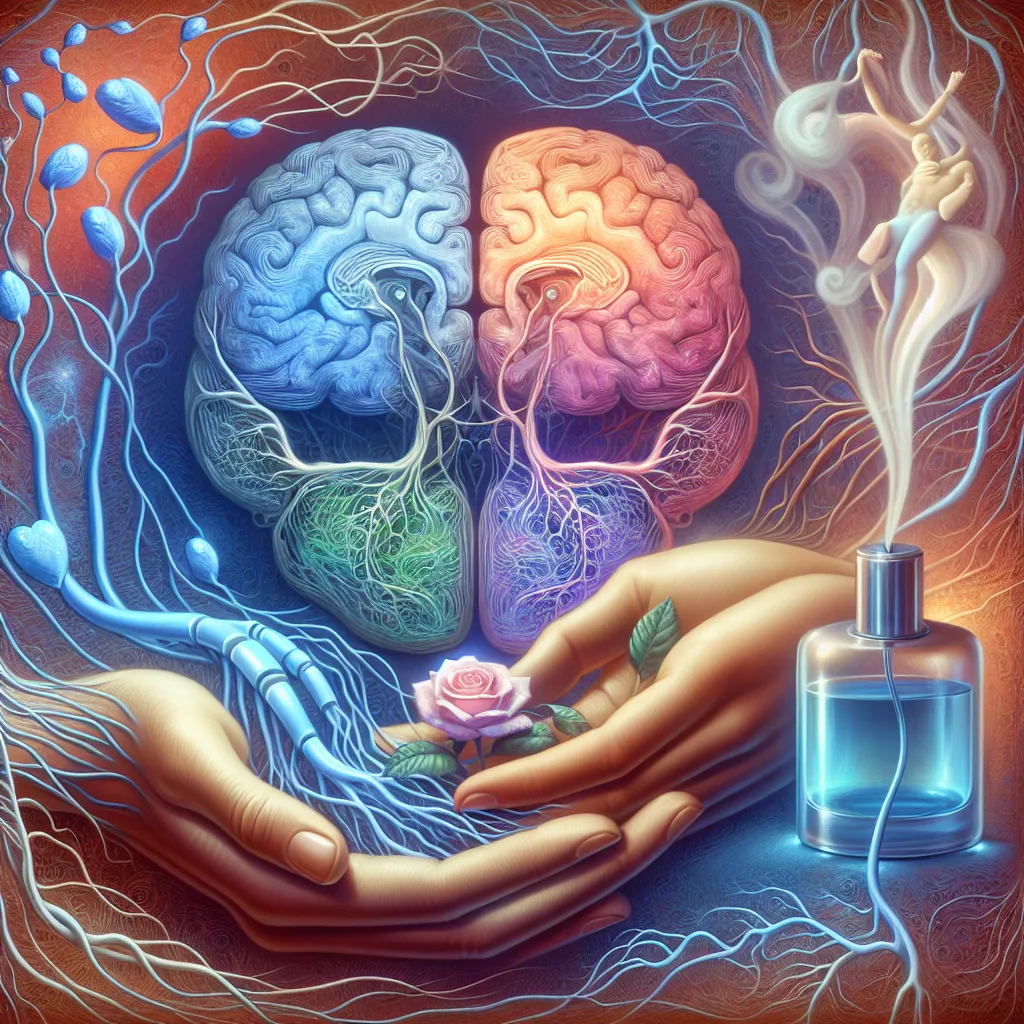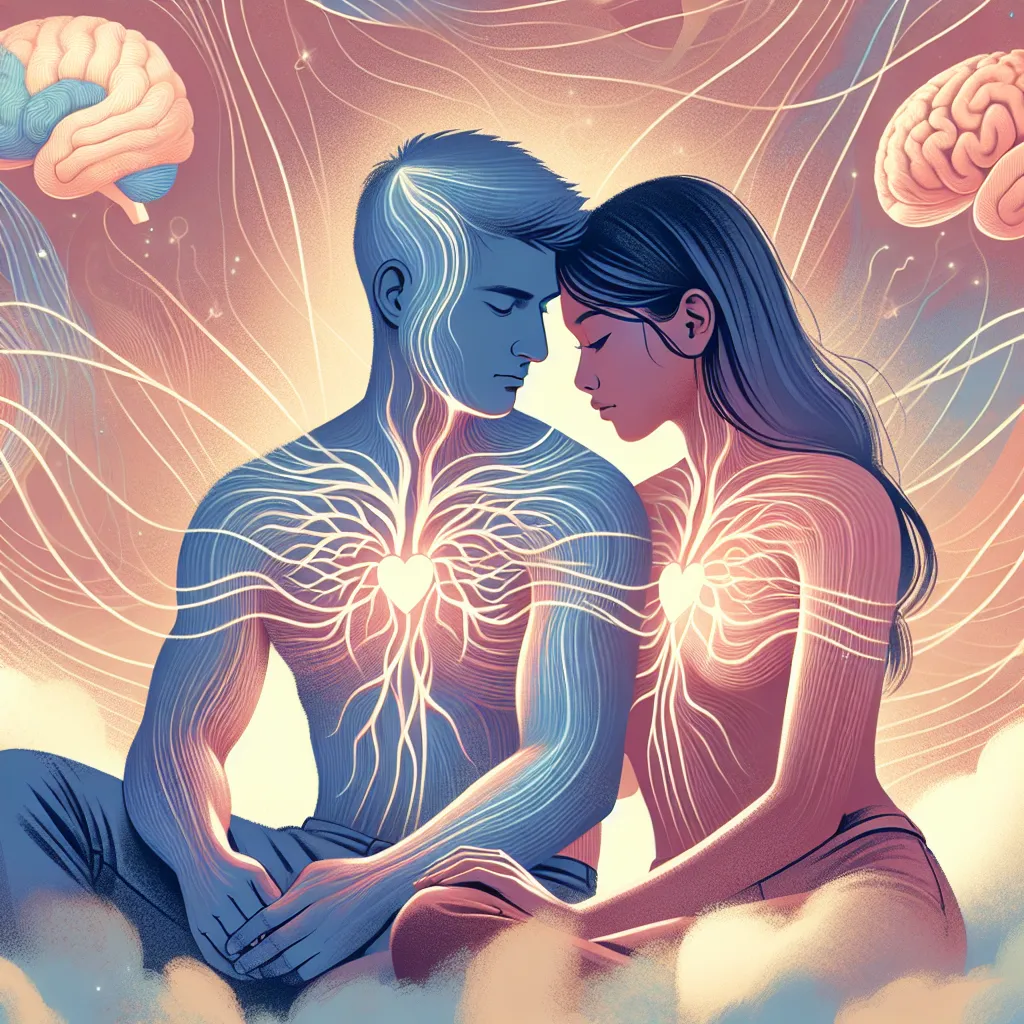Welcome, relationship enthusiasts!
Today, we’re taking a deep dive into an intriguing question that touches on the intersection of love, laughter, and the mysterious workings of the human brain: “What scientific reason makes a partner’s laugh frequency electrify your brain in love?”
The Direct Answer
Laughter, a fundamental human expression of joy, plays a significant role in creating and strengthening social bonds, including romantic relationships. The electrifying effect a partner’s frequent laughter has on your brain in love can be attributed to the release of feel-good hormones like oxytocin and endorphins, the activation of reward pathways in the brain, and the reinforcement of emotional connection and attraction.
Now, let’s journey through the extensive evidence and details that back this answer:
1. The Power of Laughter in Relationships
The act of laughter is a powerful social glue, building and cementing relationships. It’s no surprise that it holds such sway in romantic relationships.
A. The Role of Laughter in Social Bonding
Laughter is a universal language that transcends cultures and languages. It serves as a social lubricant, enhancing bonding and improving the quality of social interactions.
– Expert Perspectives: Renowned psychologist Robert Provine argues that laughter is primarily a social vocalization that binds people together. It’s a hidden language that we all speak. It’s not about jokes, it’s about relationships between people.
– Psychological Research: According to a study published in the Journal of Neuroscience, social laughter leads to an endorphin release in the brain, promoting feelings of pleasure and social bonding.
– Real-World Examples: In real life, couples who frequently laugh together report higher-quality relationships, characterized by intimacy, connection, and satisfaction.
B. Laughter and Attraction
Laughter not only strengthens bonds but also serves as a potent catalyst for attraction, lighting the sparks of love.
– Historical Context: Historically, laughter has been seen as an important trait in a potential mate. The ability to make others laugh and a shared sense of humor have been consistently rated highly in partner selection across cultures.
– Common Challenges: However, the challenge lies in the subjective nature of humor. What’s funny to one person might not be to another. As such, a mutual sense of humor is important for laughter to have positive effects in a relationship.
– Practical Applications: This implies that sharing laughter-inducing experiences, be it a comedy show or a funny movie, can be a powerful tool in fostering attraction and deepening love in a relationship.
C. Laughter as a Stress Reliever
Laughter also acts as a potent stress reliever, diffusing tension and promoting relaxation, which can enhance relationship satisfaction.
– Expert Perspectives: As noted by Mayo Clinic, laughter stimulates circulation and aids muscle relaxation, reducing some of the physical symptoms of stress. Furthermore, laughter can also stimulate positive feelings that can help you keep a positive and optimistic outlook.
– Psychological Research: A study published in the American Journal of Lifestyle Medicine found that laughter can help reduce anxiety and improve mood, contributing to overall well-being.
– Real-World Examples: Couples who use humor as a way to navigate conflict tend to experience lower levels of relationship dissatisfaction.
2. The Neuroscience of Laughter and Love
When it comes to love and laughter, the brain plays a pivotal role. From releasing feel-good hormones to activating reward circuits, the brain is central to the magic of laughter in love.
A. The Oxytocin Connection
Oxytocin, often called the “love hormone,” plays a crucial role in social bonding and is released during moments of laughter.
1. Oxytocin Release: When you laugh, especially in a social context, your brain releases oxytocin. This hormone is known for its role in fostering trust and bonding in relationships.
2. Oxytocin and Love: In romantic relationships, oxytocin can enhance feelings of intimacy and attachment. This hormone is known to increase trust and reduce fear.
3. Laughter and Oxytocin: Thus, when your partner laughs, and you join in, this shared laughter triggers oxytocin release, enhancing your emotional connection.
B. Activation of Reward Pathways
Laughter triggers the activation of reward pathways in the brain, leading to feelings of pleasure and happiness.
– Dopamine and Reward: Laughter leads to the release of dopamine, a neurotransmitter that signals pleasure and reward. This release happens in the brain’s reward pathways, leading to feelings of happiness and contentment.
– Laughter and Dopamine: When the laughter comes from your loved one, it’s likely to trigger a stronger dopamine response, adding to the electrifying feeling of being in love.
– Dopamine and Love: Dopamine also plays a significant role in the experience of being in love. It’s associated with feelings of euphoria, craving, and desire, typical of the early stages of love.
C. The Role of Mirror Neurons
Mirror neurons, the brain cells that enable us to empathize with others’ emotions, also come into play when we hear our partner laughing.
– Mirror Neurons and Empathy: These neurons fire when we perform an action or when we observe someone else performing the same action. In the context of laughter, hearing your partner laugh can trigger these neurons, leading you to mimic their emotional state.
– Laughter and Empathy: This mirroring process can enhance feelings of empathy and emotional synchrony, strengthening the emotional bond between you and your partner.
3. Long-Term Effects of Laughter in Love
Laughter doesn’t just have immediate effects on the brain and relationships. It also has long-term benefits that can contribute to relationship longevity and satisfaction.
A. Relationship Satisfaction
Frequent shared laughter is associated with higher relationship satisfaction.
– Shared Laughter and Satisfaction: A study in the journal Personal Relationships found that couples who laugh together tend to have higher-quality relationships, marked by intimacy and connection.
– Laughter as a Predictor: The study also suggested that shared laughter is a significant predictor of relationship satisfaction.
B. Relationship Longevity
Laughter can also contribute to relationship longevity.
– Humor and Longevity: A study in the Western Journal of Communication found that humor, particularly the ability to create shared laughter, is critical in keeping relationships satisfying in the long run.
– Laughter as a Buffer: The study also suggested that shared laughter can act as a buffer during conflicts, reducing their negative impact and promoting relationship longevity.
C. Laughter as a Tool for Connection
Laughter can be used as a tool to maintain and enhance connection in a relationship.
– Creating Opportunities for Laughter: Planning activities that induce laughter, such as watching a funny movie or attending a comedy show, can foster shared positive experiences and strengthen the bond.
– Using Laughter in Conflict: Using humor during conflicts can diffuse tension and promote problem-solving, thus enhancing relationship satisfaction.
4. Additional Context and Considerations
While laughter undoubtedly plays a significant role in love and relationships, it’s essential to consider its context and the importance of shared humor.
A. The Importance of Shared Humor
Having a shared sense of humor is crucial for laughter to have a positive impact on a relationship. This shared humor fosters an inside connection, creating a unique bond between partners.
B. The Use of Laughter in Conflict
While humor can diffuse tension, it’s important to ensure it’s not used dismissively. It should not be used to avoid serious issues or to belittle your partner’s feelings.
C. Laughter and Personal Well-being
Laughter is also associated with individual well-being. It can boost mood, reduce stress, and improve overall mental health, which can indirectly benefit your relationship.
Conclusion: The Definitive Answer
Based on the evidence we’ve examined:
- Laughter and Social Bonding: Laughter serves as a social glue, fostering bonding and attraction in relationships.
- Neuroscience of Laughter: Laughter triggers the release of oxytocin and dopamine, promoting feelings of pleasure, reward, and bonding. Moreover, mirror neurons enable us to empathize with our partner’s laughter, enhancing emotional synchrony.
- Long-Term Benefits: Shared laughter is associated with higher relationship satisfaction and longevity. It can also serve as a tool for connection and conflict resolution.
So, the scientific reason a partner’s frequent laughter can electrify your brain in love lies in the interplay of psychological and neurochemical responses, all geared towards promoting social bonding, attraction, and relationship satisfaction.
Understanding the power of laughter in love not only sheds light on the dynamics of romantic relationships but also provides us with practical tools to enhance connection and satisfaction in our own relationships. By embracing laughter, we can strengthen our bonds, navigate conflicts, and deepen our love, fostering relationships that are not only satisfying but also enduringly joyous.



